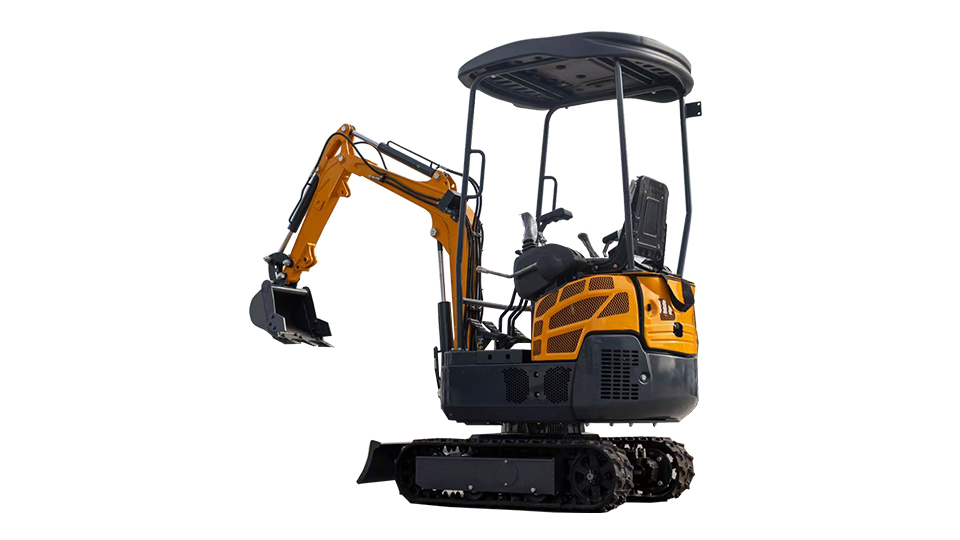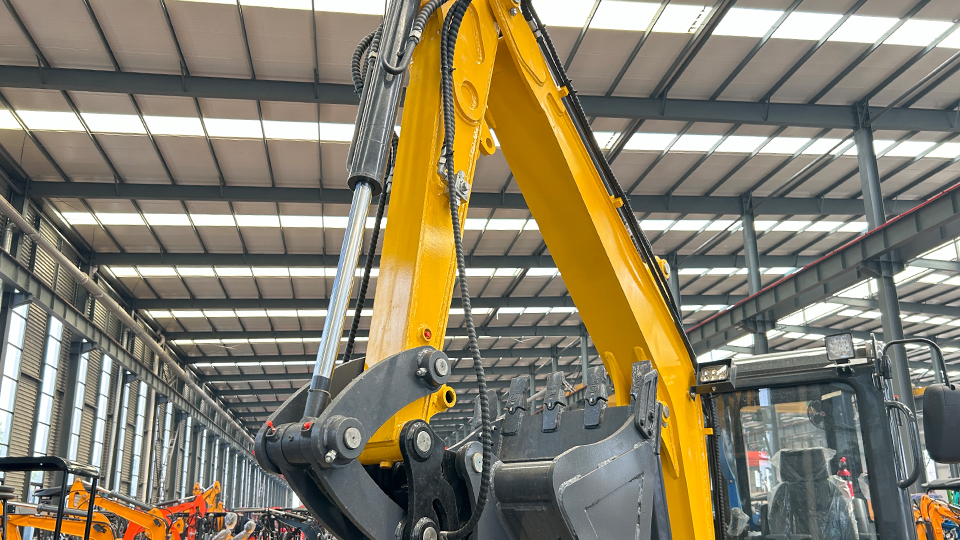INTRODUCTION
Type “used excavator” into any B-2-B portal and you will be hit with 12 000+ listings priced 30 % below your local dealer. The same search also returns horror stories: a 2022 Cat 336D that turned out to be a 2011 330D with a welded boom, or a €90 k wire-transfer that disappeared into a fake HSBC account. The global surplus of hydraulic excavators is real—China alone exported 42 000 used units in 2024—but the information asymmetry is even larger. This 2 000-word technical article gives you a repeatable, documentable process to source overseas machines while keeping legal, financial and technical risk inside your risk register.
Build the Business Case First (Risk-Adjusted TCO)
Rule of thumb: if the landed cost is not ≥18 % below domestic wholesale, the arbitrage is too thin to cover warranty, freight and potential fraud write-offs. Landed cost = FOB price + ocean freight + import duty + port fees + quay-to-yard haul + customs broker + 30-day working-capital carry. Use Incoterms 2020 to fix each line; otherwise the “cheap” machine becomes 8 % more expensive once demurrage and THC are added.
Decide on the Sourcing Geography
Japan: highest unit cost, but full service history (Shaken inspection), low-hour machines, zero counterfeiting.
South Korea: 10–15 % cheaper than Japan, similar condition, but export yards cluster around Busan—visit cost is lower.
China: 25–40 % discount vs. Japan, largest inventory, highest variance in quality and highest scam density; requires on-ground verification .
Europe (Germany, Netherlands): good for <3-year-old Tier 4-F stock coming off rental fleets; VAT refund paperwork is complex.
UAE/GCC: machines arrive from Africa with missing hours; sandblast can hide 8 000 h of wear.

Pre-Qualify Suppliers Using a Weighted Scorecard
Attribute Weight Pass / Fail Threshold
Business license & I/E registry 15 % Must score ≥80 %
Active website >2 years 5 % WHOIS creation date ≥24 months
Bank account name = corporate entity 15 % Exact match, no personal names
ISO 9001 or equivalent 10 % Current certificate <3 years
Physical yard >50 machines 20 % Google-Earth geo-verify + date stamp
Video walk-through capability 10 % Live pan of serial number within 4 h
Reference from freight forwarder 10 % Written attestation on letterhead
Acceptance of LC at sight 15 % SWIFT MT700 verbiage agreed
Use Alibaba “Verified Supplier” or Komatsu ReMarketing as a starting filter, but do not rely on platform badges alone—they only prove the supplier paid the fee .
Desk-Check the Serial Number Before You Negotiate
Request:
10-digit PIN visible in the LCD cluster (Cat) or on the boom sticker (Hitachi).
High-resolution photo of the cab data plate—must match the PIN.
Screenshot of the ECM hours taken with today’s newspaper in the background (prevents Photoshop).
Run the PIN through:
EquipmentWatch Theft Database (North America)
TER (The Equipment Register) in EU/UK
JIVA (Japan Used Construction-Machinery Association) database
Any “not found” result is a red flag; any mismatch between PIN and model suffix (e.g., PC200-8 vs. -10) is an automatic disqualify.
Use a Tiered Payment Structure—Never 100 % Upfront
Recommended split for a used 20-ton excavator priced $110 k:
10 % with PI (pro-forma invoice) to lock the unit → paid via company credit card (charge-back protection).
20 % after own inspector issues Stage-1 report (machine condition, no structural welds).
60 % against on-board bill of lading + insurance certificate naming you as loss-payee.
10 % after port discharge inspection (arrival check for boom cracks, slew play, free of radioactivity).
Use LC at sight or escrow through Alibaba Trade Assurance; wire transfers are last resort and only to the exact corporate beneficiary listed on the China SAFE registration .
Commission a Third-Party Inspection—Not the Supplier’s “Friend”
Inspectors accredited by APAVE, SGS or TÜV charge $450–$700 per 20-ton machine and will:
Ultrasonic-test 50 mm of boom root weld for lamination.
Pull hydraulic oil sample, test ISO particle count; ISO 22/20/18 or worse = US$6 k pump rebuild.
Measure slew bearing axial play; >0.8 mm = upcoming bearing swap (~US$9 k parts).
Verify undercarriage % remaining using OEM wear gauge; convert to USD value so you can renegotiate if <60 %.
Inspection report must be dated within 72 h of container loading; otherwise the yard may swap units.
Lock in Freight & Marine Insurance Early
Break-bulk vs. 40-ft HC flat-rack: break-bulk cheaper for >30-ton machines but 10-day longer transit.
Secure All-Risk ICC (A) marine cargo insurance; used excavators fall under Class 6 “machinery” with 0.35 % premium.
Add constructive total loss clause—pays 100 % if crane boom is severed during loading.
Book freight through a non-vessel-operating common carrier (NVOCC) that has used-machinery experience; standard household-goods forwarders will mis-declare HS codes and trigger customs penalties.
HS Code & Import Duty—Get It Right the First Time
8429.52 – self-propelled crawler excavators with 360° revolving superstructure – duty into US is free under Chapter 99 safeguard exclusion (2025).
EU HS 8429.52.10 – 4.5 % third-country duty + 19 % VAT (DE) or 20 % (FR).
India HS 8429.52 – 7.5 % BCD + 18 % IGST.
Wrong code (e.g., 8430.69 for surface miners) = storage fees of $150/day while customs awaits re-classification.
Arrival Inspection & Escrow Release Protocol
Upon port discharge:
Cut container seal on video; record seal number vs. bill of lading.
Immediate external sweep for radiation (CS-137 sources sometimes left in cab).
Check boom-serial against LC description; any mismatch → do NOT release final 10 % payment.
Run engine to 2 000 rpm; verify NO white oil vapor (coolant in oil).
If deviation >5 % of inspected condition, activate LC discrepancy clause—bank withholds payment until compensation or repair is agreed.
Red-Flag Checklist—When to Walk Away Instantly
Price >30 % below regional average .
Seller insists on personal bank account or crypto/USDT.
Only WhatsApp photos, refuses live video with newspaper.
Duplicate photos on multiple Alibaba accounts (Tineye reverse image).
Company registration <12 months or import-export license missing.
Pressure for “deposit to hold today” with 24-hour deadline.
No acceptance of LC at sight or Trade Assurance.
Serial number yields total-loss insurance record or police theft report.
Recommended Secure Channels by Region

Japan:
K-Vantage (Komatsu-certified pre-owned) – 12-month power-train warranty, prices 8–10 % above traders but includes vessel booking.
USS Auction, Aucnet – require I-Bid account + 10 % deposit; use JIVA inspector.
South Korea:
Hyundai & Doosan Official Reman centers in Incheon – 6-month warranty, English ECM reports.
China:
SINO-Shipping verified yards in Shanghai & Guangzhou – mandatory on-site inspection, escrow payment .
Avoid “free member” Alibaba 1-year-old accounts; insist on Made-in-China.com “Audited Supplier” + SGS factory audit .
Europe:
Ritchie Bros. Planet IronPlanet – escrow included, but buyer’s premium 4 %; still cheaper than 10 % VAT claw-back risk from private sellers.
Cost-Benefit Recap
Assuming 22-ton class:
Japan low-hour (4 k h) CIF Houston $118 k, domestic dealer $145 k → 19 % savings = $27 k delta.
Inspection + freight + insurance + duty (0 %) ≈ $9 k; net gain $18 k even after risk-mitigation spend.
Scam write-off probability drops from 8 % (unfiltered) to 0.8 % when above protocol is followed—economically justified.
Post time:Sep-25-2020
